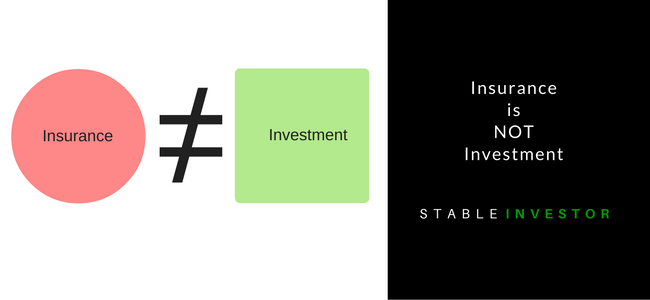Sponsored Investment Tips
ADVERTISEMENT
In a world where flashy ads and smooth-talking salespeople promise financial freedom, better insurance, and early retirement, it’s easy to get swept up in the hype. Whether it’s the latest money-saving app, a “too-good-to-be-true” investment opportunity, or a budget insurance plan, many products sound perfect—until reality hits.
This article is your wake-up call. It’s not about sugarcoating. It’s about real talk on what finance and insurance products actually do, what they don’t, and how to protect yourself from getting fooled—again.
The Mirage of Easy Money: What They Don’t Tell You
Let’s start with the biggest myth of all: there’s an easy way to get rich. Whether it’s an app that “automatically grows your investments,” or a cryptocurrency scheme promising 20% monthly returns, the message is the same: “We’ll make you money while you sleep.”
Here’s the truth:
- All investments involve risk.
- The higher the return promised, the higher the risk (or the scam).
- No one cares more about your money than you do.
🚩 Red flags to look for:
- “Guaranteed returns”
- “No risk involved”
- “Limited-time opportunity”
- “Secret method the banks don’t want you to know”
These are classic signs of a financial trap.
The Budget Insurance Trap: When Cheap Becomes Costly
Many people shop for insurance based on one thing: the price of the monthly premium. That’s understandable—we all want to save money. But there’s a hidden danger in going too cheap.
Imagine buying the cheapest health insurance, only to find out it doesn’t cover hospitalization. Or a car insurance plan that won’t pay for damage if the accident happened outside business hours.
Don’t be fooled by the lowest price. Ask yourself:
- What does the policy actually cover?
- What are the deductibles (the amount you pay before coverage kicks in)?
- What is excluded?
Real example:
A policy may offer “full coverage” for your home but exclude flood or fire damage. Without reading the fine print, many homeowners find out too late that they’re not protected.
Overhyped Financial Tools: All Flash, No Function
Financial apps are everywhere in 2025. Some are great, but many are all marketing and no value.
Example 1: Budgeting Apps That Guilt-Trip You
Apps like SpendTracker send constant alerts like, “You’ve gone over your coffee budget again.” These tools create anxiety more than they create change.
Example 2: Investment Platforms with “Expert Picks”
Some apps push curated investment picks claiming they’re based on “advanced algorithms.” In reality, these are often driven by affiliate partnerships and product sponsorships.
Real Talk:
- You don’t need 5 budgeting apps.
- You don’t need to invest in what’s “trending.”
- You need tools that are clear, customizable, and focused on your goals—not on their ad revenue.
The Credit Score Myth: What Really Affects Your Score
You may have seen services claiming they can boost your credit score overnight—for a fee. Or apps that say applying for a specific credit card will instantly “optimize” your financial health.
Let’s break it down. Your credit score is based on:
- Payment history (35%)
- Amount owed (30%)
- Length of credit history (15%)
- Credit mix (10%)
- New credit inquiries (10%)
The truth: No one can magically fix your credit. Legit improvement takes:
- Paying on time
- Reducing debt
- Avoiding unnecessary credit applications
Watch out for services charging $50/month to “repair” your score. In most cases, they’re just sending dispute letters you could generate yourself—for free.
Fancy Financial Advisors vs. Real Help
Many financial advisors still work on commission, meaning they earn more when they convince you to buy certain investment products—like insurance-linked annuities, loaded mutual funds, or private equity.
That creates a conflict of interest.
You think you’re getting professional advice, but you’re actually getting a sales pitch.
What to look for instead:
- Fee-only fiduciary advisors. These professionals charge a flat fee or hourly rate and are legally obligated to act in your best interest.
- CFPs (Certified Financial Planners). They’re trained and certified in personal finance, not sales.
Insurance Add-ons You Probably Don’t Need
Insurance agents love to upsell. Sometimes, you’re offered extra features for “just a few dollars more.”
Common upsells include:
- Rental car reimbursement
- Roadside assistance
- Critical illness riders
- Accidental death benefit
While some of these can be helpful, many people already have similar coverage through other sources—like your car warranty, health insurance, or credit cards.
Don’t double-pay. Review what you already have before accepting any extras.
Watch Out for Auto-Renewing Subscriptions
Many financial and insurance products automatically renew every year—and prices tend to go up quietly. Some insurance providers rely on customer inertia, counting on the fact that most people won’t shop around or re-read the terms.
Real Talk:
- Compare your auto, home, and life insurance every year.
- Call and negotiate premiums.
- Switch if necessary. Loyalty doesn’t pay in insurance.
Tools That Are Actually Worth It in 2025
Amid the noise, there are genuinely helpful tools out there. Here are a few worth your attention:
✅ Robo-Advisors for Long-Term Investment
Platforms like WealthGrow AI or BetterInvest offer low-fee, diversified investment portfolios based on your goals and risk tolerance.
✅ Usage-Based Car Insurance
Apps like DriveWise or MileTrack calculate your premiums based on how safely and how much you drive. If you’re a careful driver, you save more.
✅ Transparent Budgeting Tools
Apps like YNAB (You Need a Budget) or PocketGuard help you build a real financial plan, rather than just tracking expenses.
✅ Free Credit Monitoring Services
Check your score regularly using Credit Karma, Experian, or your bank’s app. These services also alert you to identity theft and unauthorized changes.
Conclusion: Take Control, Not Chances
We’ve all been fooled by slick sales pitches, half-truths, and fine print that bites back. But in 2025, you have more power than ever to take control of your financial life.
Here’s how to stay sharp:
- Read every line. Don’t skip the terms and conditions.
- Ask questions. If something sounds too good to be true—it usually is.
- Compare products. Don’t accept the first offer.
- Know your goals. Tools should support your plan, not distract from it.
- Trust, but verify. Look up reviews, licensing, and background info before buying or subscribing.

